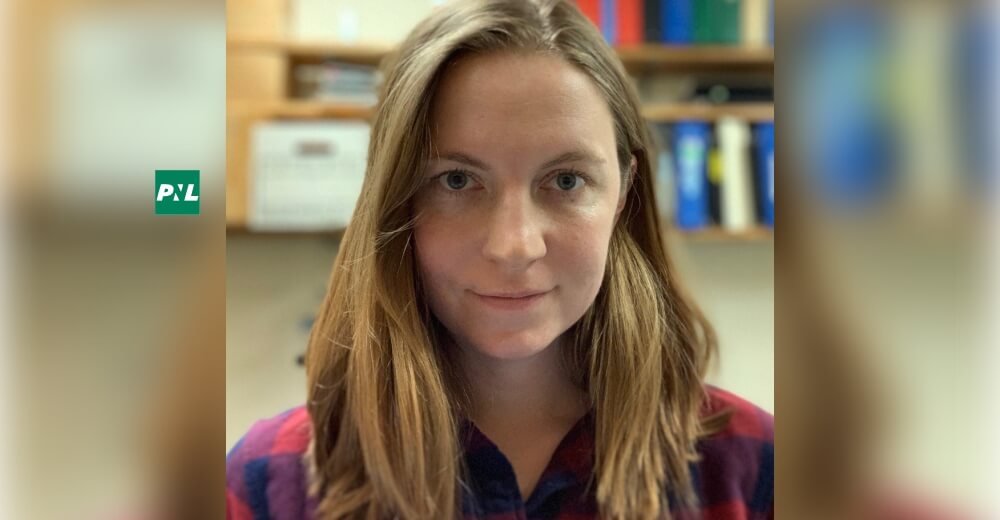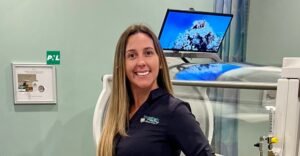The great diversity of nature has always kept the human race alive, while lately, some highly biodiverse regions have been under stress for commercial uses. Rich-in-life tropical rainforests are being severely diminished most significantly by the production of palm oil, which is highly consumable—crucial in the food, cosmetics and pharmaceutical industries. Its cost of production, however, is high in another direction: deforestation, loss of biodiversity, and a large carbon footprint. As consumer awareness builds, so does the demand for more responsible solutions, and forward-thinking biotech companies are standing up to such urgent needs.
Among these innovators is Xylome, a biotech company with a clear mission to reshape the landscape of sustainable oil production. Dr. Joanna Bundus, Director of Research, is at the helm of the company’s research initiatives. With a background in evolutionary genetics, Dr. Bundus joined the team to apply her expertise toward creating environmentally friendly products that could address real-world challenges. “I wanted to transition into biotech to apply my skills in a more environmentally impactful way,” she explains. The company’s efforts are concentrated on Yoil®, a bio-based and sustainable alternative to palm oil, which could significantly reduce the environmental toll associated with traditional palm oil extraction. Xylome is one of several innovative startups committed to providing sustainable options that align with the industry’s growing awareness of the ecological impact of palm oil.
The journey to a sustainable palm oil alternative has not been without obstacles, but Xylome’s unique approach and Dr. Bundus’s leadership have positioned it at the forefront of this change. Dr. Bundus highlights the company’s commitment, stating, “Our core mission is to harness biotechnology to develop sustainable fats and oils, offering viable alternatives to ingredients with significant environmental impacts.” With a vision deeply embedded in environmental responsibility, the company is creating products that cater to diverse industries while prioritizing ecological health.
Let’s take a step toward sustainability by exploring innovative, eco-friendly alternatives to palm oil that prioritize both performance and the planet!
Developing a Sustainable Alternative
Essential to operations is the mission to create eco-friendly oil solutions that not only meet industry needs but also address the environmental crisis caused by palm oil production. According to Dr. Bundus, the objective goes beyond simply offering an alternative product: “Palm oil is a significant driver of deforestation, causing urgent environmental and ecological challenges.” Recognizing the unsustainable nature of traditional palm oil, the company developed Yoil®, a bio-based, bio-identical and sustainable oil that is intended to reduce reliance on deforestation-driven palm oil.
Yoil® represents an innovative solution, designed specifically for pharmaceutical use. This non-toxic alternative reduces harmful chlorinated hydrocarbons often associated with traditional palm oil, making it an ideal choice for the health-conscious pharmaceutical industry. Pharmaceutical companies are increasingly recognizing the environmental costs of palm oil derivatives, and Yoil® offers a safer, cleaner option to meet industry demands. Recently, Xylome demonstrated that Yoil® is very low (138-fold less) in chlorinated hydrocarbon levels, than bleached palm oil. This has always been a concern for palm oil, particularly when used in baby formulas.
Scaling for Impact
A crucial part of the mission is ensuring that Yoil® and other oil alternatives are both accessible and cost-effective. To accomplish this, the company has launched several research initiatives aimed at enhancing the versatility and efficiency of Yoil® production. Dr. Bundus elaborates, “We’re actively scaling up the production of Yoil, our sustainable palm oil alternative, and focusing on several research initiatives to make it versatile, accessible, and efficient.” By adjusting the lipid profile of Yoil®, they can tailor it to suit different customer needs, expanding its applicability across multiple sectors.
Another key area of focus is cost efficiency. The company is committed to keeping its sustainable oils competitively priced, which requires optimizing every step of production. From increasing the yield of sugars converted into Yoil® to exploring diverse, sustainable feedstocks, they are pushing the boundaries of cost-effectiveness. Feedstock choice is especially important, as it affects the overall sustainability and market viability of the product. “Feedstock cost is just as crucial as conversion efficiency,” Dr. Bundus explains, highlighting ongoing exploration of various sustainable inputs for their hyper-lipogenic yeast strains.
Beyond Yoil®, they have also introduced Yoil-Cream® and TopicOil™, two products designed for cosmetic and pharmaceutical applications. Leveraging what Dr. Bundus describes as “innovative large lipid body technology,” these products are ideal for incorporating hydrophobic active ingredients into formulations, adding new capabilities for cosmetic and pharmaceutical developers. This technology provides advantages over traditional liposomes, which allows them to function more effectively and expand their potential use in various formulations.
The Technologies Behind the Oils
One standout feature of the approach is the use of yeast fermentation to produce sustainable oils. The company’s yeast strains are highly adaptable, capable of processing a broad array of sugar sources, which enhances flexibility in feedstock choice. By “experimenting with side and waste streams as feedstocks,” they are also able to integrate more sustainable, often underutilized resources into production. This adaptability is crucial for making sustainable oils viable, as it allows for the use of various feedstocks, ultimately reducing costs and environmental impact.
They are also pioneering a solvent-free extraction process, further aligning with sustainability goals. As Dr. Bundus notes, “Shifting to a solvent-free extraction process makes our production even cheaper, cleaner, and safer.” This development not only lowers the environmental footprint of Yoil® but also reinforces the commitment to cleaner and safer production practices, aligning with industry shifts towards more responsible manufacturing processes.
Prioritizing Sustainability and Environmental Stewardship
In developing Yoil® and its related products, the company is fully committed to making a lasting positive impact on the environment. Dr. Bundus explains that their approach is to focus on oils that have large markets and pressing environmental issues, such as palm oil. Through their innovative processes, they aim to provide products that help protect natural resources while offering an environmentally friendly alternative to traditional oils. By “fermenting waste cellulosic sugars to make palm oil replacements,” they reduce dependency on fresh agricultural food resources, enhancing both sustainability and market feasibility.
Another pillar of the sustainability approach is maintaining cost competitiveness. To successfully replace palm oil, their products must meet price parity with traditional oils, a challenge that demands continuous process optimization. “We design our process for price parity,” Dr. Bundus emphasizes, underscoring the commitment to refining production methods to ensure affordability without compromising on quality.
Navigating the Challenges of Scale-Up and Production
One of the most significant challenges in biotechnology is scaling up production to meet market demand without sacrificing quality or sustainability. For the team, this has meant overcoming technical hurdles in maintaining product consistency and yield efficiency at larger volumes. Dr. Bundus shares that they have faced “hurdles in maintaining product consistency and yield efficiency as we scale Yoil production,” a common issue in biotech scaling. However, they have approached these challenges with careful optimization of fermentation conditions and a willingness to adapt processes as needed.
Building Partnerships for Greater Impact
By working with other startups and academic institutions, they can tap into a wealth of knowledge and agility that drives innovation. Dr. Bundus describes these collaborations as “rewarding,” noting that they enable the team to test ideas and receive feedback more rapidly, which accelerates product development. Working with small, fast-moving teams from other startups, for instance, has allowed them to fine-tune products and ensure they align with market needs.
A particularly exciting partnership is with the University of Wisconsin, Madison, where the team is working on a new class of antifungal treatments that combine leading drug discovery with sustainable oils. This project demonstrates the company’s commitment to not only addressing environmental concerns but also advancing healthcare solutions, showcasing the potential of sustainable oils beyond traditional applications.
Shaping the Future of Palm Oil Alternatives
Dr. Bundus envisions a future where the functionality of oil alternatives is paramount. She believes that “the real impact of palm oil alternatives will come from creating oils that deliver specific functionalities” to meet a diverse range of needs. As consumer demand for sustainable products continues to grow, customization in oil production is expected to play a major role in shaping the industry’s future. By engineering oils with precise characteristics, they aim to meet both environmental goals and market needs, helping to create high-performance solutions that offer enhanced functionality for various applications.
Advice for Researchers and Startups in Sustainable Innovation
Drawing from her own journey in sustainable oil development, Dr. Bundus advises researchers and startups to prioritize functionality and market fit. “A sustainable product has to perform well and meet the specific needs of its application, or it won’t gain traction in the market,” she asserts. Understanding the target market and engaging with customers early in the product development process are key to ensuring success. For Dr. Bundus, refining products to align with real-world needs is essential, as it allows companies to deliver sustainable solutions that genuinely benefit both consumers and the environment.
In addition, Dr. Bundus cautions against taking external funding too early, as it can sometimes push startups to prioritize rapid growth over thoughtful development. “Venture funds, private equity, or loans can sometimes push you to focus on rapid development for quick returns, which might lead to rushed products that fall short of their potential,” she advises. For startups in the biotech and sustainability sectors, taking the time to refine products and processes before scaling can make a significant difference in long-term success. The balance between speed and thoroughness, she suggests, is vital to ensuring that the solutions created are truly sustainable, impactful, and capable of meeting the challenges of a fast-changing world.
The Role of Consumers in Supporting Sustainable Alternatives
Dr. Bundus emphasizes the powerful role consumers play in driving environmental change. She encourages individuals to be mindful of their purchasing decisions, particularly when it comes to products that contain palm oil. “I’d like consumers to know how much power they hold in driving positive change,” she states. By choosing sustainable alternatives to palm oil, consumers can make a tangible difference in reducing deforestation and its associated impacts. Their choices, collectively, send a clear message to businesses about the importance of environmental responsibility.
Every purchase of a sustainable alternative, Dr. Bundus believes, contributes to a larger movement aimed at protecting biodiversity and reducing the carbon footprint associated with traditional palm oil production. “Every choice contributes to reducing deforestation, protecting biodiversity, and paving the way for a healthier planet,” she adds, reinforcing the importance of consumer awareness in the fight against climate change.
Paving the Way for a Greener Future
As the demand for more sustainable products grows, Xylome’s innovative approach to creating bio-based oils stands as a promising model for industries looking to transition away from environmentally harmful practices. Under Dr. Bundus’s leadership, the company is not only pioneering the development of viable palm oil alternatives but is also showing the broader biotech industry how sustainability and performance can coexist. Through advanced research, strategic partnerships, and a deep commitment to environmental stewardship, Xylome is poised to make a lasting impact on the market.
The journey toward creating sustainable oils is complex and challenging, but it is also one of great potential. With innovations like Yoil® leading the way, companies like Xylome are not just developing new products—they are fostering a deeper cultural shift toward responsibility and sustainability. As this movement continues to gain momentum, the future looks promising for both the environment and the industries that depend on these vital resources. By prioritizing sustainable practices in research, production, and consumption, Xylome is helping to ensure that future generations inherit a healthier planet, where nature and industries thrive together.




